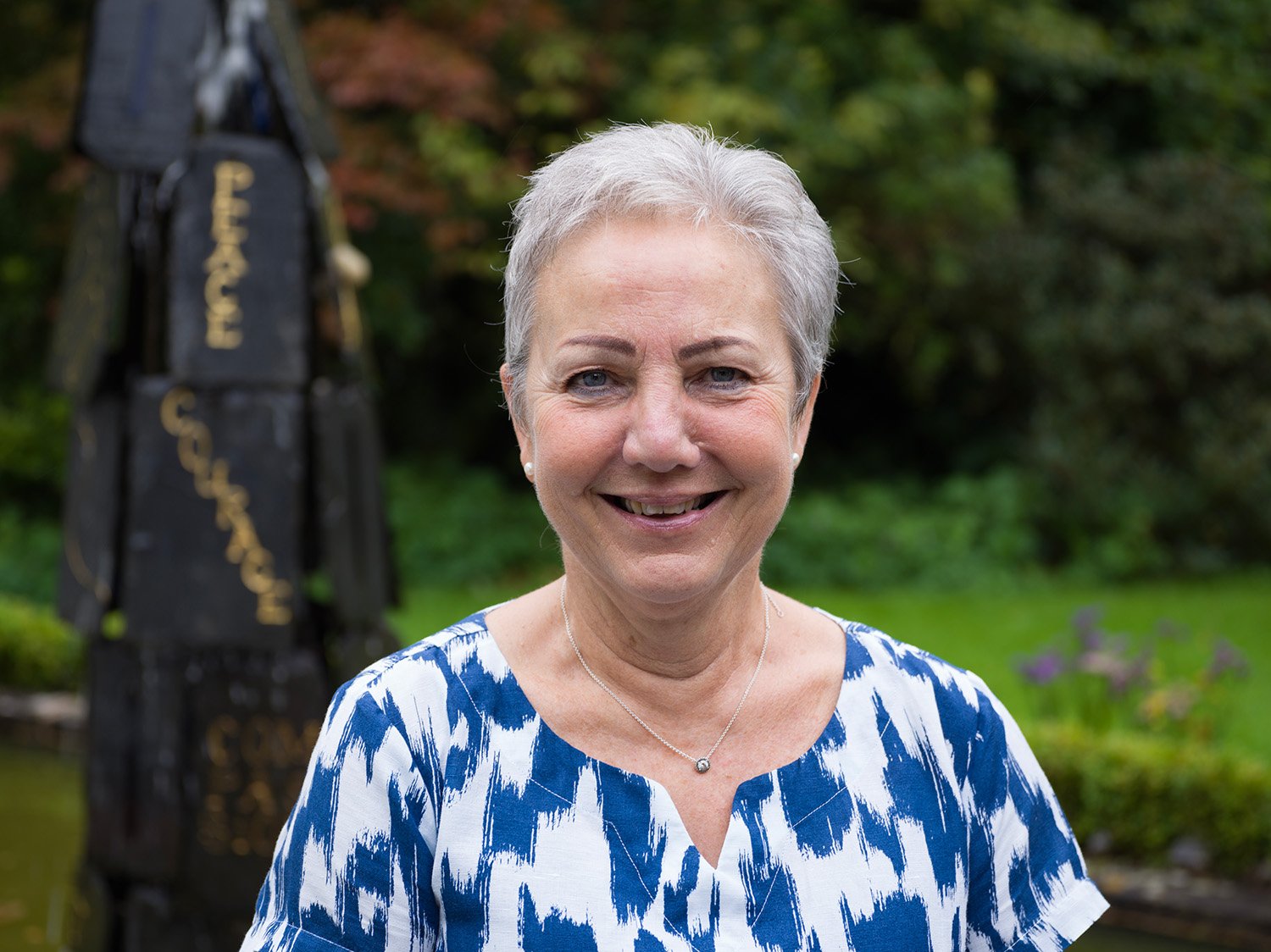What matters most?
Ann
Ann is the CEO of the Bracken Trust. She made the move into the role 7 years ago from her previous position as a complaints manager in the NHS. She has not looked back since.
“I saw this job advertised, and I love having a role that has contact with people. I came for an informal visit, not sure what to expect, wondering whether people would be very emotional, and I was a bit apprehensive. After the visit, I'd knew I would love to work there. I was successful at the interview, got the job, and have loved every minute of it. Sounds a strange thing to say, a Cancer Support Centre, but it's very humbling. The people here are so positive and it doesn't matter what part of the journey they're on. You don't often see people very upset here, they just come in and appreciate what support they get and go away with a smile on their face is great.”
The Bracken Trust cancer support centre is based in Llandrindod Wells and welcomes people from Powys and the surrounding area. The support is not limited to cancer patients but also to their families, offering wrap-around support for them all. Family members, carers and patients can just drop in for a cup of tea and a chat if needed. This is alongside a whole host of support and therapies on offer from counselling, yoga, and singing to reflexology and a great selection of complimentary therapies. It is a haven for many. “Appointments are set times and people can come in and see a nurse at a set time. But, it's so comfortable that people will often just drop in, they might get up in the morning having a really rubbish day, so they say I'm just going to pop up to the Bracken and have a cup of tea and a chat with somebody and it does a world of good.”
The centre is a very welcome addition to the community and has a calm and welcoming atmosphere. The team have worked hard to ensure it is as non-clinical as possible. Making it homely and relaxing “It is like coming into your front room at home. The idea is that you feel comfortable enough to just relax when you come in and not be on call for anything. One of the things that people have fed back to us is that visiting here feels like a big hug. You come in, and you feel like somebody's looking after you. The whole you not just the cancer part. It's all the other bits and pieces that go with it. We've got the fantastic gardens around the centre and you can just go for a wander around the garden or sit in the summer house.”
The Bracken Trust plays an important role in the lives of so many people affected by cancer. It’s a safe space for them to be “I think one of the important things is that people feel they can be listened to and that isn't in any way negative towards the NHS. They just haven't got the resources for somebody to come in and sit for an hour or two hours, to just talk through all the emotions they're going through. Not just them as the individual patient, but their family or if they're in a caring responsible role. We see everybody as an individual. We do use various assessment tools, for someone who's a patient, we use what is called a holistic needs assessment, which helps to draw out the top concerns for them, you can then put a care plan in place and agree on how you're going to work together and address those concerns. Similar assessments and tools are used for carers and the bereaved too. Everything is highly confidential when they come in here, the nurses know who a patient, a carer or a family member is but people like myself and the admin team only recognise them as familiar faces. We don't need to know that level of detail, so everybody gets treated independently. We're not treating somebody as a patient any different from somebody who's a carer, it's based on them as an individual.”
To access the centre people can self-refer, but also some are referred by a health professional, friends or by a family member. Initially, people can just pick up the phone and don't have to attend the centre if that’s what they want. “There is no emphasis on doing any sort of assessment on their first visit, they just come in, have a look around and see if they want to access services. It’s all really straightforward with tea and coffee on tap.”









